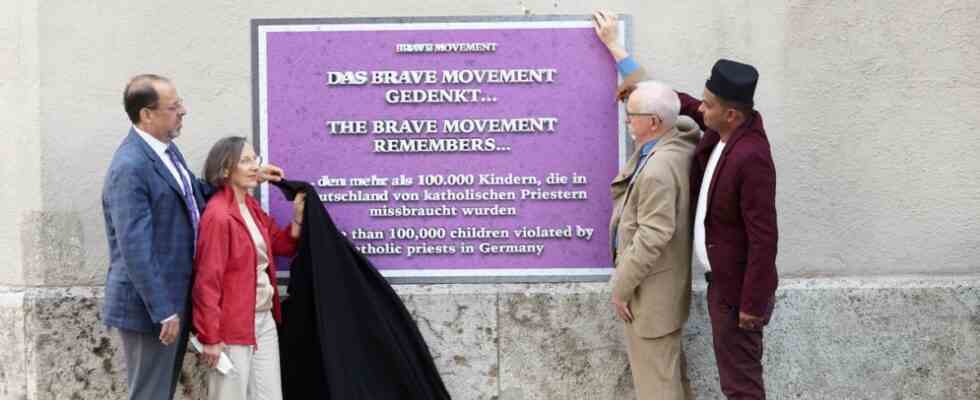“Sexual abuse is a pandemic,” says Patrick Sandford, a UK theater director. “When politicians say today: That’s not our priority at the moment, they actually mean: I’m uncomfortable talking about it. I want to call out to them: Be brave! Be brave!” – “Brave Movement” is also the name of an international initiative by victims of abuse.
This Friday, shortly before the G-7 summit in Elmau, not far away, members of the Brave Movement, including Munich-based Agnes Wich from the Southern Germany People’s Initiative, put up a memorial plaque for victims of sexualized violence at the Sankt Peter church in Munich on their own initiative revealed. At the weekend they also want to set up a “camp of survivors” near the conference venue at Schloss Elmau, and fight for more efforts by the G-7 countries to combat sexualized violence against children and, among other things, hand over a petition with 70,000 signatures.
Not a single G-7 country has taken protective measures for children on the Internet
Because so far, the Brave Movement concludes, the G-7 countries have failed to protect children against sexualised violence. The activists compared the measures taken by individual states on a so-called “score card”. Accordingly, the United States, France and Japan achieve the worst child protection results. Not a single G-7 country has a national action plan to combat sexual violence. In addition, not a single G-7 country has taken protective measures to make the Internet a safe space for children and young people. Germany can at least score points for being the only G-7 country to have established a national independent Advisory Board for Affected Persons. And Canada has invested the most money to combat sexual violence against children in developing countries, although these investments have declined significantly after 2018.
The corona pandemic, the war against Ukraine and climate change have led to a massive increase in attacks on children, says Patrick Sandford: “Every humanitarian crisis makes it easier for perpetrators to approach children under the pretext of wanting to help. ” Rosalie Rivera, Canadian educator, victim and abuse prevention specialist, wants to draw G-7 leaders’ attention to abuse as an economic factor. For example, in adulthood, abuse victims have a higher risk of becoming chronically ill or addicted, and many take their own lives, Rivera says: “The economic impact of these long-term consequences is costing the world trillions of dollars in lost not just productivity but human resources overall quality of life.”
Incidentally, the commemorative plaque on Alter Peter didn’t hang long on Friday: it disappeared just a short time after the press conference.

